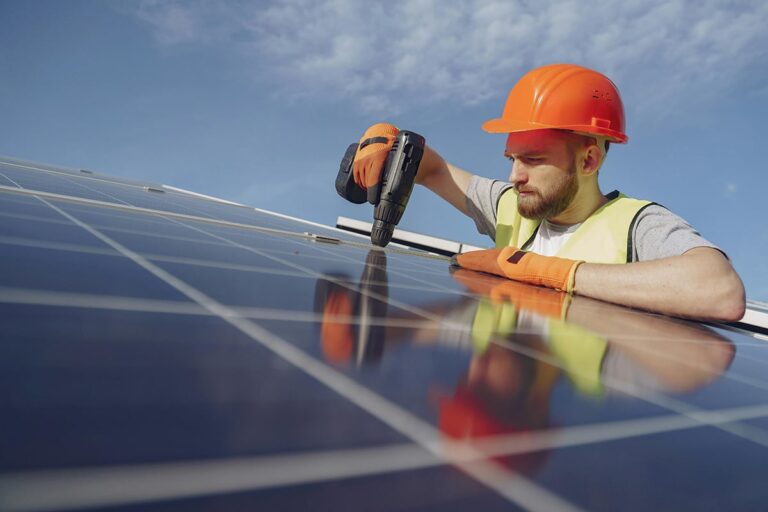A report commissioned by UK energy supplier OVO Energy has found that fewer than one in ten people report having received special training in green skills at work, which the company says is a major risk to the rollout of solar energy and other green technology.
The research, carried out in partnership with Energy and Utility Skills, found that only 7% of people are developing green skills, while less than one in three (30%) have even heard of ‘green skills’.
The report also highlighted the extent of the green skills gap; Decarbonizing homes alone could require 362,000 workers by 2035. To combat this shortage, OVO has announced that it will retrain 15,000 green positions, including consultants, surveyors and installers.
Charlotte Eaton, Chief People Officer, OVO said: “People are at the heart of our mission at OVO, which is why we are committed to investing in our teams through learning and reskilling opportunities. Without significant investment in the green workforce, Britain risks losing its place as the world leader in net zero. We need more people to help us in our mission to install electric vehicle chargers, heat pumps, solar power and insulate homes across the UK.”
“The green skills gap our country faces is one of the biggest challenges we face as a country, and we cannot do it alone. Our ambitious plan pioneers a new generation that has the opportunity to shape the green skilled industry for many years to come.”
The solar skills gap
The UK solar industry is a key target of efforts to recruit and upskill green professionals. Skills are one of the four key focuses of the UK Solar Taskforce, which was established in 2023 to support the UK’s ambitions for 70GW of solar power by 2035. The taskforce will seek to improve diversity within the sector while ensuring broader awareness of employment and training. possibilities within solar energy.
Mark Wakeford, chairman of both EvoEnergy and the Solar Taskforce’s skills group, speaking at an industry event in April, called workforce levels “the biggest problem in the solar sector”, adding: “The workforce numbers were difficult in the past for the sector. , but now the professionalization of the roles is the case. Professionals are needed to deliver a competent quality product for the industry. We need to get people qualified for this.
“We still have a lot of work to do to identify qualifications and routes to qualifications for the sector.”
The green skills gap must be closed quickly
The green skills gap is not due to a lack of interest from the current or future workforce; OVO’s report shows that one in five (21%) people have requested green skills training at least once at work, with three in five (61%) recognizing that developing green skills will benefit their future careers. good will come.
Meanwhile, the need for green skills education is becoming apparent among those entering the job market: 75% of 25-34 year olds wish they had received more information about green skills during their education.
Last year, the MCS Charitable Foundation noted that “a huge influx” of 15-25 year olds will need to enter the green workforce to meet renewable installation targets set for the 2030s, including around 60,000 people installing solar panels . The MCS report highlighted green apprenticeships as a key target for recruiting more young people into the sector, revealing that 57% of young people would be “more likely” to consider a job in renewable energy if apprenticeships were available so that they could earn and learn on the labor market. the same time.
Solar Power Portal’s publisher Solar Media will host the UK Solar Summit on June 4-5, 2024 in London. The event will explore Britain’s new utility and rooftop solar landscape, look at the opportunities within a GW+ annual market, and much more. For more information, go to the website.


